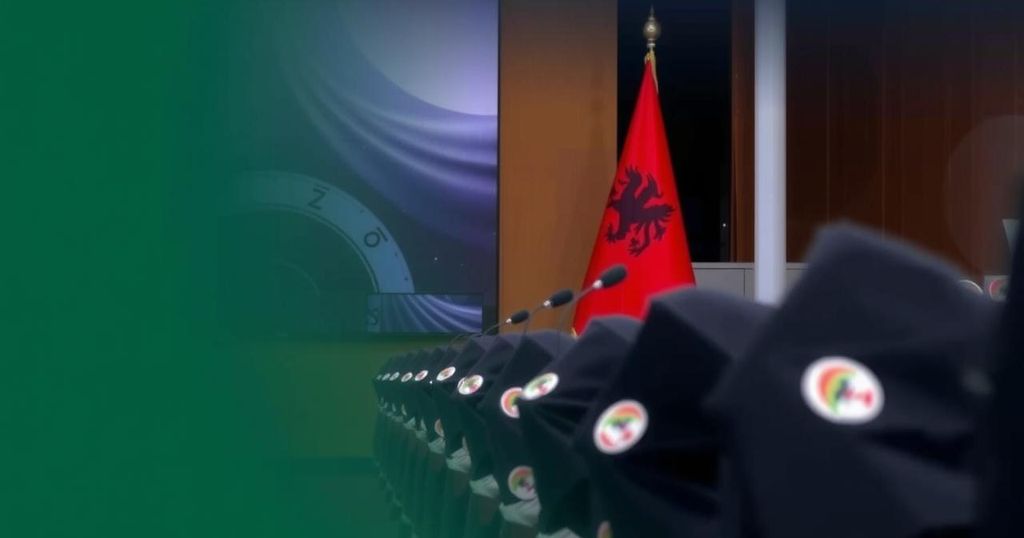COP29 Summit: Global Leaders Urge Action Against Climate Change
At COP29 in Baku, Albania’s Prime Minister Edi Rama criticized the lack of actionable results from the summit, questioning the significance of discussions when major polluters remain inactive. Leaders like Shehbaz Sharif and Gaston Browne called for urgent financial assistance, advocating for grants rather than loans. UN Secretary-General Antonio Guterres emphasized the need for a strong financial framework to assist vulnerable nations. Overall, the summit underscored the increasing pressure for significant climate action amid rising emissions data.
During the ongoing COP29 summit in Baku, Edi Rama, the Prime Minister of Albania, expressed grave concerns regarding the perceived ineffectiveness of the summit. He noted that while leaders convene, fostering dialogue and camaraderie, the critical issue of rising carbon emissions persists, as confirmed by the United Nations Secretary-General. Rama provocatively questioned the purpose of such gatherings when significant polluters exhibit no drastic changes in their operations. He emphasized the necessity for a collective political will to foster meaningful climate action beyond mere rhetoric. As various leaders took the stage, the call for financial support emerged as a recurrent theme. Muhammad Shehbaz Sharif, Prime Minister of Pakistan, underscored the need for climate justice, advocating for grants instead of loans to facilitate climate action in his country. Similarly, Gaston Browne, the Prime Minister of Antigua and Barbuda, reiterated the urgency for a robust financial commitment from wealthier nations, emphasizing that climate change poses immediate threats to lesser developed nations. The challenges posed by climate change were further highlighted by small island nations and the ongoing need for climate adaptation and mitigation funding, as pointed out by UN Secretary-General Antonio Guterres. He declared an urgent requirement for a well-structured loss and damage fund to support vulnerable nations grappling with the repercussions of climate change. Guterres urged wealthier countries to fulfill their fiscal responsibilities to those most affected by environmental disasters. The Climate Crisis was vividly brought to light, with leaders calling for more comprehensive action to prevent future catastrophes. With current emissions data indicating a troubling rise, negotiators at COP29 are faced with the daunting task of translating discussions into actionable commitments that align with the scientific imperative to limit global warming to 1.5 degrees Celsius. Despite the vocal criticism and concerning reports, there is a glimmer of optimism as some nations commit to aggressive emission reduction targets.
The COP29 summit consolidates a global platform for leaders to address and combat climate change. Notable remarks by various leaders spotlight the urgency for direct financial intervention alongside meaningful political cooperation. The summit’s discourse reflects a collective uncertainty regarding the effectiveness of previous agreements aimed at reducing carbon emissions, underpinned by an alarming rise documented by the United Nations. This intersection of finance, accountability, and climate resilience is instrumental in understanding the broader implications of discussions at COP29.
COP29 has become a critical juncture for addressing the escalating climate crisis as highlighted by leaders emphasizing accountability and financial support. Edi Rama’s remarks underscore a general frustration about the perceived inaction from major emitters, while calls for justice and practical financial solutions echo throughout the summit. The collective momentum from smaller nations and the pointed demands for justice signal an urgent need for substantial progress to safeguard the planet’s future.
Original Source: www.theguardian.com




Post Comment